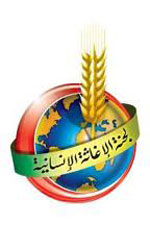Human Relief Agency
International Awards
Hamdan Award for Volunteers in Humanitarian Medical Services
2003-2004
The Human Relief Agency is a voluntary establishment founded in 1984 within the Egyptian Doctors" Syndicate in response to one of the main objectives of the Medical Profession, and as an embodiment of one of the main characteristics of doctors.
As a result of the natural disasters that have stricken some African, Arab and other countries, the Agency has been extending varied relief services. Within the context of relief for Islamic countries, the Agency rendered medical and health care assistance to the Afghani refugees in the Pakistani areas to which they have fled. These people are in critical need of health care. Moreover, tremendous efforts were exerted to halt the spread of contagious diseases.
By the end of the 1980s, the situation in Palestine had extremely deteriorated, and much aid was required as a result of the outbreak of the first Intifada (uprising) in 1987, with resulting increase in the number of seriously injured Palestinians.
The Agency has actively contributed to the relief and treatment of injured Palestinians, and has offered large quantities of drugs and medical aid to Palestinian hospitals.
In Egypt itself, the Agency has played a prominent role in relief works related to a number of disasters, the most serious of which was the collapse of a large number of houses in the district of Al-Ameriya, Alexandria in 1991.
The Agency dispatched teams of doctors who worked day and night in over 40 sites, and for many days to save the lives of victims.
In Bosnia - Herzegovina, the Agency also played a remarkable role in alleviating suffering caused by the lengthy war there. It has dispatched a number of medical convoys and field hospitals. It also contributed to financing the project the establishment of the Leek Pharmaceutical Factory, which is supplying the minimal requirements for this war-torn country.
It also launched a number of vaccination campaigns, and helped look after orphans. Moreover, the Agency had similar active presence in Somalia, Azerbaijan, South Lebanon, Albania, and a number of former Soviet Union republics.
Another outstanding achievement was the anti-cholera vaccination campaign undertaken in Kazakhstan during which some 100,000 doses were delivered.
Moreover, the Agency had dispatched a number of medical teams to this country during the civil war there in the mid -1990s.
At the local level, the Agency launched a number of projects for the welfare of handicapped people (those with hearing or mobility difficulties), and has helped rehabilitate them. It has also provided artificial limbs to those who could not afford them.
In 2002, the Agency launched a new program for providing humanitarian emergency subsidies to save the lives of those who are in bad need of immediate surgery, particularly heart surgery. The Agency also responded to the Second Palestinian Intifada (uprising), dispatching in 2000 large quantities of medical equipment and materials, as well as a number of fully equipped ambulances for use by Palestinian hospitals.
Moreover, the medical teams dispatched by the Agency set up field hospitals in different parts of Palestine. In Iraq, the Agency was active during the blockade years (1991-2003), and has organized a number of medical convoys to save the lives of children who were facing imminent death. Additionally, the Agency played an important role in relief works in disaster-plagued Sudan.
For all these achievements, the Human Relief Agency of the Egyptian Doctor's Syndicate deserved the Hamdan Award for Volunteers in Humanitarian Medical Services for the year 2003-2004

